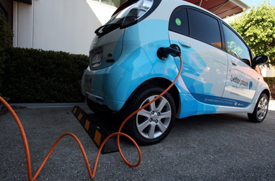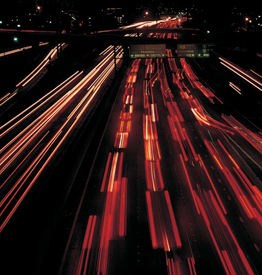Weekly column from Council Courier e-newsletter by CEO Greg Hallam, Friday 25 November 2016.
Call it the Great Road User Charging Debate and know that it started in earnest this week.
Federal Urban Infrastructure Minister Paul Fletcher, in response to Infrastructure Australia's 15-year Plan, has committed to establish a study into the potential benefits of road user charging for light vehicles. He added a caveat that this is the start of a 10 to 15 year journey, but even so, it doesn't get any bigger than this, folks.

The LGAQ and yours truly have been quietly predicting the wholesale reform of road user pricing for a number of years. It was always inevitable for one inescapable reason: federal fuel excise revenues will fall as a consequence of fuel efficiency, smaller cars and the uptake of electric cars. It’s expected to come to a head in the early part of the next decade so Canberra must act now. It’s the same story the world over.
My view is that Mr Fletcher’s 15-year timeframe was an attempt to settle the nervous nellies. My guess is that we will have some firm road user charging policy in five to seven years. That’s because of Federal Treasury’s forecast decline in fuel excise revenues.
There are three immutable laws of economics in relation to any new tax and spend model: who’s up who, who gets what and who pays for the rent. In short, who are the winners and losers.
My guess is that eminent person’s report that Mr Fletcher has announced (I'm tipping the inquiry will be headed up by my old Treasury colleague Ken Henry) will call for reform of current state and federal road user tax and charges, including registration fees. They probably will call for one only road user charge - a federal one.
Then it comes down to what mechanism is used. A distance based tariff or something else based on the impact of the car on congestion, road surface, the environment and so on.

Put money on a finding that the new charge should be revenue neutral in the name of fairness and equity. But then the real fun begins. Among the three levels of government, who gets what out of the revenue collected? Rest assured that Canberra won't take any less than it does now, and the states will want at least what they get now for vehicle regos.
Then there is us: local councils. A permanent Roads and Bridges to Recovery program? Hypothecated and indexed?
The LGAQ has done a poultice of work in this area over the past three years, including going to the US and Canada to see how they have done it. Many US states have had road user charging for up to a decade. We have had many private discussions with Roads Australia and our own State Government institutions. Only last year we sponsored some academics and practitioners from the US to visit us, as I reported on in this column at the time.
Most importantly, at the LGAQ we get Queensland is very large and the most decentralised state in the nation, spending a third of our life in the bush ensures we do. We will on behalf of our member councils be ready and well-armed to fight hard for a good revenue deal.
This Great Road User Charging Debate will probably span two federal and two state elections and potentially split the city and the bush.
Strap your seat belts on. It's going to be a rough windy road ahead (pun intended).